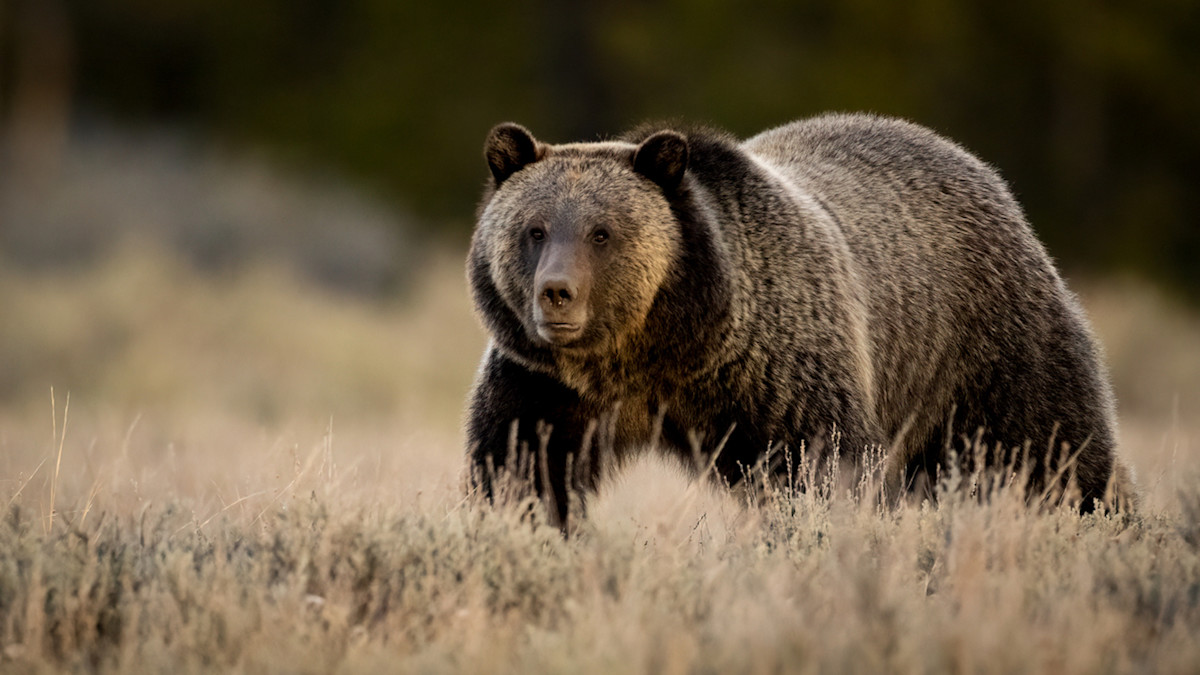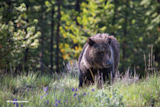Grizzly Delisting Petition Paves Way for Potential Hunting Season

There are nearly 2,000 grizzly bears roaming around Montana, Idaho, and Wyoming, which might be just enough for these charismatic ursids to come off the Endangered Species List.
TheU.S. Fish and Wildlife Service (FWS) recently accepted two petitionsfrom the governors of Montana and Wyoming to review the listing status of grizzly bears in the Greater Yellowstone Ecosystem (GYE) and the Northern Continental Divide Ecosystem (NCDE).
The Service denied a third petition from the governor of Idaho, who proposed delisting the populations in the Cabinet Yaak, Northern Cascades, Bitterroot, and Selkirk recovery zones.
The FWS said that the two petitions for the GYE and NCDE have enough merit to warrant a closer look at griz populations in these three states–the first step in a long, arduous, and likely litigious delisting process.
What Happens Now?
Now, we wait. According to the FWS press release, “the Service will now initiate a comprehensive status review of the grizzly bear based on the best available scientific and commercial data available to inform a 12-month finding. If those findings result in proposing one or more DPSs for delisting, the Service will consider those in the context of the ongoing recovery for the rest of the population in the larger listed entity.”
What does all that mean? The next step in any delisting process is a “12-month finding” which will result in an assessment of whether grizzly bears in one or more distinct population segments have recovered to a point that they may be removed from the list of endangered and threatened wildlife. In short, it will be at least a year until we hear more from FWS.
Despite the long road ahead, many are hopeful about this initial step forward.
“The Boone and Crockett Club celebrates the recovery of iconic large carnivores like grizzly bears,”Boone and Crockett ClubPresident, James Cummins, said. “We are dedicated to scientific wildlife management and have known for years that populations of these bears in the Greater Yellowstone Ecosystem and the Northern Continental Divide Ecosystem have exceeded recovery goals. It is time for the law to acknowledge that, using whatever tools we have. Understanding the length of these processes, we look forward to working with state leaders in Helena, Cheyenne, and Boise to ensure a smooth transition to state management of these animals.”
State Management
We’re already seeing debates over management authority, responsibility, and capability pivot to the states. If or when grizzly bears are delisted, the states of Idaho, Wyoming, and Montana will be responsible for their management. Hunters and conservationists in those states are already preparing for that prospect and are working with state wildlife agencies and legislatures to be ready.
“The Wyoming Wildlife Federation is excited to celebrate the successful recovery of grizzly bears on the landscapes of Wyoming and Montana after decades of recovery efforts,” Government Affairs Director forWyoming Wildlife Federation, Jessi Johnson, said. “We will continue to work in the halls of power in Cheyenne to ensure the state is prepared to assume management of these iconic critters. We have full belief in the ability and leadership of the Wyoming game and fish to put management plans in place that find compromise and long-lasting policy to keep the management in state hands.”
The case is similar in Montana’s capitol.
"The Montana Wildlife Federation has long been a proponent of recovering the grizzly bear with eventual return to state management,”Montana Wildlife FederationExecutive Director, Frank Szollosi, said. “We are alarmed, however, that recent legislation related to large carnivores poses serious threats to grizzly bears and prevents FWP from adequately managing grizzly bears as required for delisting. We'll keep working together to ensure our laws and state grizzly management implement the careful stewardship we believe Montana’s grizzly bears deserve. It's clear we have serious work to do before delisting.”
Just like deer, turkey, quail, and grouse, technical management decisions about bears should be made by the state wildlife agency and their commission. If you live in these states, now is the time to reach out to your legislators and your commissioners to let them know how important their decisions are to sustainably delist these bears.
Remember to be respectful andbe as clear as you can. When you’re calling your state legislators or commissioners, it’s much more likely that you can get them on the phone than if you’re making a call to Washington, DC. That can be intimidating, but all three of these states have citizen legislatures, so their senators and representatives tend to be fairly relatable.
Grizzly Hunting Season?
Last time a grizzly bear delisting occurred in 2017,Wyoming and Idaho initiated the process of developing hunting seasons. We’re more than a year away from something like that, but it’s possibility is on everyone’s radar.
“It’s disheartening that the federal government may strip protections from these treasured animals to appease trophy hunters and the livestock industry,” the Legal Director of the Center for Biological Diversity’s carnivore conservation program, Andrea Zaccardi, said. “Grizzly bears have come back from the brink since receiving federal protection in 1975, but the recovery of these imperiled bears still has a long way to go.”
Others look forward to a day when this might be a possibility. MeatEater’s Ryan Callaghan pointed out that state management agencies are more than capable of tailoring hunts to the needs of individual species.
“There are many species that are managed by the states that you cannot hunt. There are many species managed by the state that you can only hunt in certain regions. This is a par-for-the-course thing for states. It’s nothing crazy,” Cal said.
“We’ll get management back at some point, but it doesn’t mean we’ll immediately start hunting grizzly bears when we do. We may have to show folks who don’t like that idea, as well as the Fish and Wildlife Service, that states can handle the management of these species responsibly. I’m alright with that, but I certainly want a future where we can hunt grizz in my own home state of Montana.”
Shop
Sign In or Create a Free Account
Related

Wildlife Management
Western States Open New Efforts to Delist Grizzly Bears

Endangered Species
Wyoming Grizzly Hunt Update: Judge Rules Against Delisting Bears




